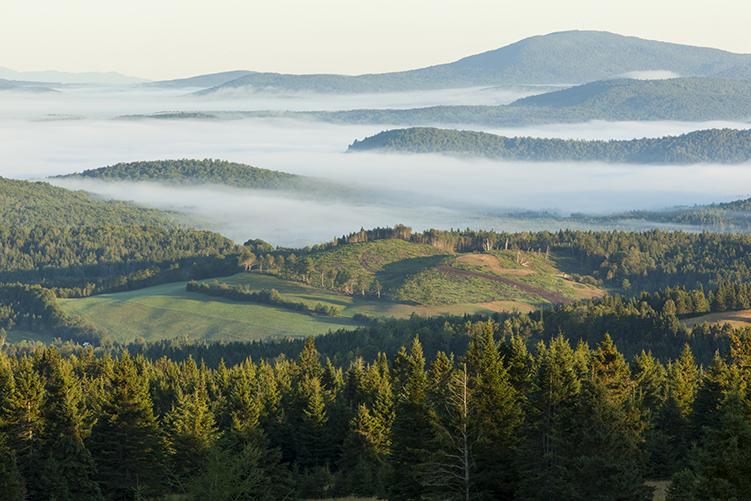
The New Hampshire Supreme Court issued a unanimous opinion on July 19, 2019 affirming the unaninmous decision made by the New Hampshire Site Evaluation Committee on March 30, 2018 to deny Northern Pass a Certificate of Site and Facility. Click here to learn more.
The New Hampshire Supreme Court issued a unanimous opinion on July 19, 2019 affirming the unanimous decision made by the New Hampshire Site Evaluation Committee on March 30, 2018 to deny the Northern Pass project a Certificate of Site and Facility.
Click here to read a blog post about the Supreme Court decision.
Northern Pass was a corporate partnership between Eversource and Hydro-Quebec to construct a 192-mile, high-voltage transmission line from Canada through New Hampshire to bring electricity to load centers in greater Boston. The project was introduced to the public in October 2010 as a private "merchant project" and shortly thereafter became one of the most controversial proposals the state has ever seen. More than 30 towns directly impacted by Northern Pass voted at town meetings to oppose the project. Thousands of individuals have expressed their opposition to federal and state regulators with permitting authorities for the project. More than eight-thousand people signed a petition in 2015 urging former Governor Maggie Hassan to insist on the complete burial of Northern Pass. After seventy days of evidentiary hearings in 2017-18, the New Hampshire Site Evaluation Committee concluded that Northern Pass had failed to meet its burden of proof to demonstrate that it should be awarded a siting permit.
Early threats by the developers to use eminent domain led to the passing of HB 648 in 2012, which prohibited merchant transmission line projects from using eminent domain. In response, Northern Pass spent more than $40 million buying land in order to gain access to a potential route. However, the Forest Society worked successfully with local landowners to block the route for an overhead line through northern New Hampshire.
From the beginning of this multi-year battle, the Forest Society advocated that if the Northern Pass transmission line was to be built in New Hampshire, it should be buried in its entirety along an existing transportation corridor like Interstate 93. Similar projects proposed to bring Hydro Quebec electricity to markets in southern New England through Vermont and Maine are proposed to completely bury the transmission lines.
New Hampshire’s experience with Northern Pass taught us a number of lessons:
- As a state, we must defend conservation lands from such encroachments. We have both an ethical and legal obligation to defend these lands, held in public trust, from inappropriate commercial development and degradation.
- We must protect New Hampshire’s scenic landscapes. If Northern Pass had been permitted as proposed, New Hampshire would have enabled a private corporation to reap enormous profits at the expense of one of our most significant assets as a state, natural beauty. The route proposed by Northern Pass for its overhead towers (most well above the natural tree line) would have degraded multiple landscapes, adversely impacted our significant tourism economy and compromised New Hampshire’s quality of life for future generations.
- If New Hampshire is ever to host a big extension cord like Northern Pass in the future, it should be on our terms and the benefits to New Hampshire citizens should be self-evident. Northern Pass was designed to benefit electricity consumers in Massachusetts, not New Hampshire. The Granite State was simply a place for the project developers to build a big extension cord. If the developers had proposed to completely bury Northern Pass, they may be building the project today.
- While Northern Pass appears to be dead, we must remain vigilant. A project very similar to Northern Pass was proposed in New Hampshire in the 1980’s. It was not built as proposed in New Hampshire, only after citizens rose in protest. History has a way of repeating itself.
